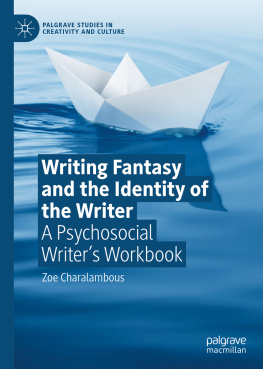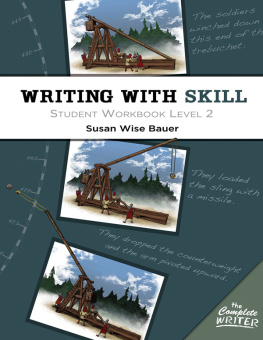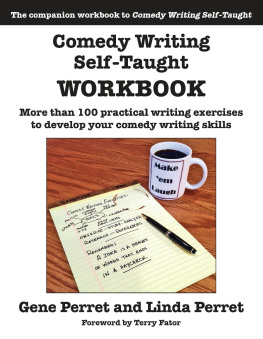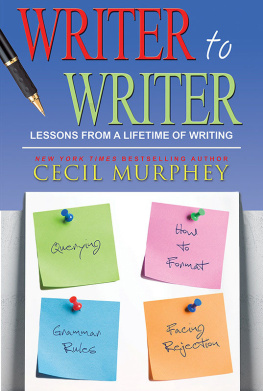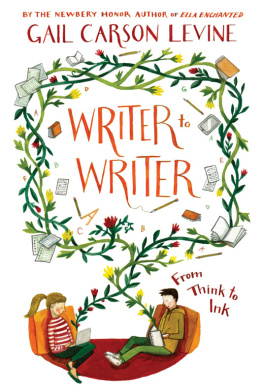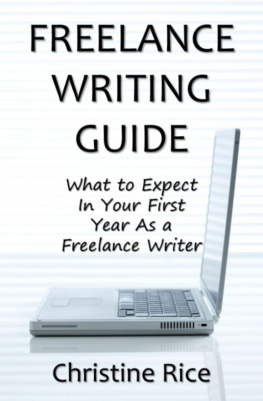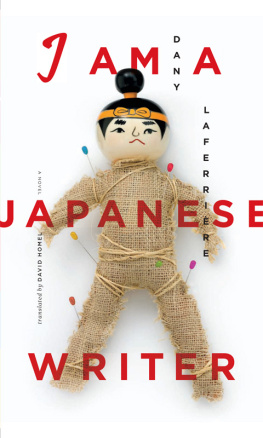Zoe Charalambous - Writing Fantasy and the Identity of the Writer A Psychosocial Writer’s Workbook
Here you can read online Zoe Charalambous - Writing Fantasy and the Identity of the Writer A Psychosocial Writer’s Workbook full text of the book (entire story) in english for free. Download pdf and epub, get meaning, cover and reviews about this ebook. year: 2019, publisher: Springer, genre: Children. Description of the work, (preface) as well as reviews are available. Best literature library LitArk.com created for fans of good reading and offers a wide selection of genres:
Romance novel
Science fiction
Adventure
Detective
Science
History
Home and family
Prose
Art
Politics
Computer
Non-fiction
Religion
Business
Children
Humor
Choose a favorite category and find really read worthwhile books. Enjoy immersion in the world of imagination, feel the emotions of the characters or learn something new for yourself, make an fascinating discovery.
- Book:Writing Fantasy and the Identity of the Writer A Psychosocial Writer’s Workbook
- Author:
- Publisher:Springer
- Genre:
- Year:2019
- Rating:3 / 5
- Favourites:Add to favourites
- Your mark:
- 60
- 1
- 2
- 3
- 4
- 5
Writing Fantasy and the Identity of the Writer A Psychosocial Writer’s Workbook: summary, description and annotation
We offer to read an annotation, description, summary or preface (depends on what the author of the book "Writing Fantasy and the Identity of the Writer A Psychosocial Writer’s Workbook" wrote himself). If you haven't found the necessary information about the book — write in the comments, we will try to find it.
Zoe Charalambous: author's other books
Who wrote Writing Fantasy and the Identity of the Writer A Psychosocial Writer’s Workbook? Find out the surname, the name of the author of the book and a list of all author's works by series.
Writing Fantasy and the Identity of the Writer A Psychosocial Writer’s Workbook — read online for free the complete book (whole text) full work
Below is the text of the book, divided by pages. System saving the place of the last page read, allows you to conveniently read the book "Writing Fantasy and the Identity of the Writer A Psychosocial Writer’s Workbook" online for free, without having to search again every time where you left off. Put a bookmark, and you can go to the page where you finished reading at any time.
Font size:
Interval:
Bookmark:
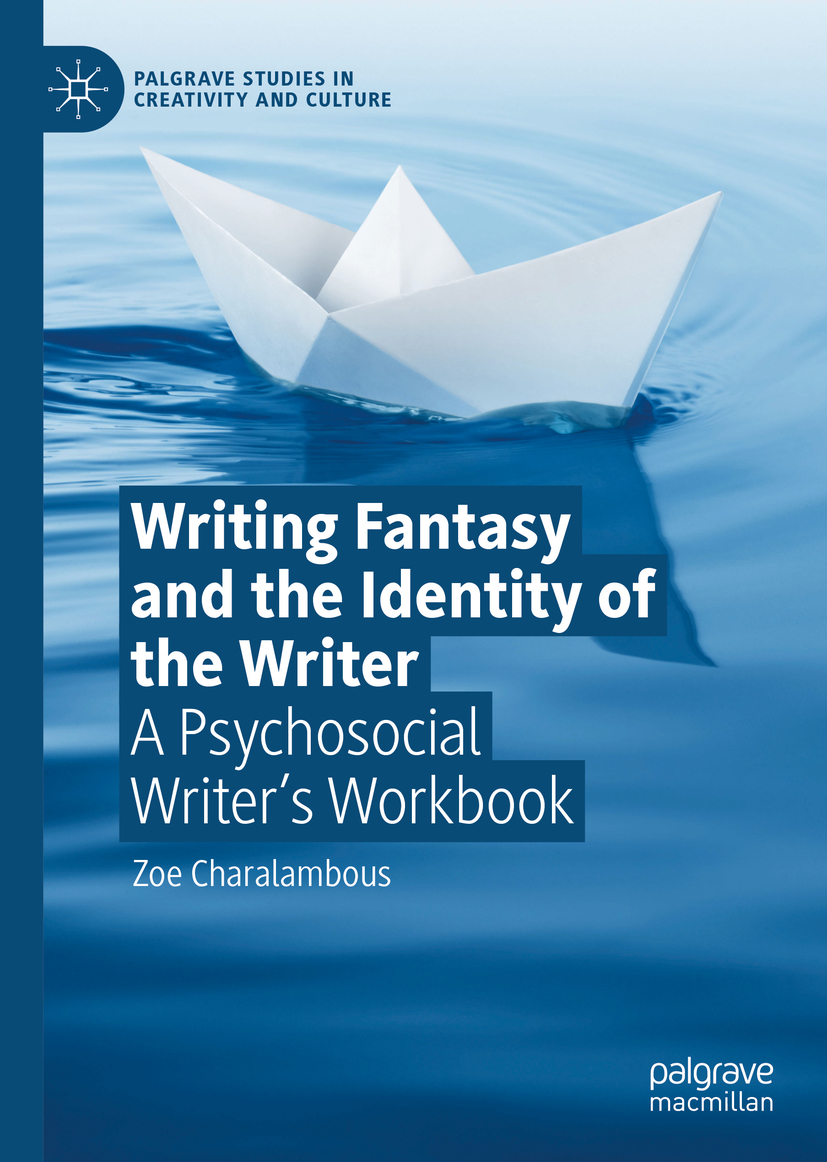
Both creativity and culture are areas that have experienced a rapid growth in interest in recent years. Moreover, there is a growing interest today in understanding creativity as a socio-cultural phenomenon and culture as a transformative, dynamic process. Creativity has traditionally been considered an exceptional quality that only a few people (truly) possess, a cognitive or personality trait residing inside the mind of the creative individual. Conversely, culture has often been seen as outside the person and described as a set of things such as norms, beliefs, values, objects, and so on. The current literature shows a trend towards a different understanding, which recognises the psycho-socio-cultural nature of creative expression and the creative quality of appropriating and participating in culture. Our new, interdisciplinary series Palgrave Studies in Creativity and Culture intends to advance our knowledge of both creativity and cultural studies from the forefront of theory and research within the emerging cultural psychology of creativity, and the intersection between psychology, anthropology, sociology, education, business, and cultural studies. Palgrave Studies in Creativity and Culture is accepting proposals for monographs, Palgrave Pivots and edited collections that bring together creativity and culture. The series has a broader focus than simply the cultural approach to creativity, and is unified by a basic set of premises about creativity and cultural phenomena.
More information about this series at http://www.palgrave.com/gp/series/14640

Cover illustration: kkong / Alamy Stock Photo
This Palgrave Macmillan imprint is published by the registered company Springer Nature Switzerland AG
The registered company address is: Gewerbestrasse 11, 6330 Cham, Switzerland
To Avgoustos, my rock and my star,
to our paper boat
and to Giannis.
There is that kind of miracle that can happen in a moment, and that Other kind that takes ten years. This book contains all of this magical energy thanks to very many people in my life.
I wholeheartedly thank Grace Jackson at Palgrave Macmillan for believing in my work and supporting me with helpful reviews that led me to conceive the idea of this book. I also wish to thank Joanna ONeill at Palgrave for her valuable support and professional guidance.
I thank the anonymous women of Young Womens Christian Association (YWCA) of Harilaou, Thessaloniki, Greece, whose writings inspired me to embark upon the journey of my PhD.
I thank Moira Egan whose Practice of Poetry has given birth to my own making of letters, my own moira: destiny in Greek. Moira you began the fantasy that started it all.
Claudia Lapping is in more than one way the Other writer of this workbook. Thank you, Claudia. You are the mentor of Writing Fantasy.
I will be forever indebted to Tamara Bibby as she threw me in the deep waters of teaching and I swam. I shall be forever thankful to you Tamara for your straightforward and honest feedback. My heartfelt thanks go to Tatiani Rapatzikou at Aristotle University for her continued support.
Dominique Hecq, unknowingly in the past, has been my soul mate in this journey of Lacan and Creative Writing. I thank you Dominique for recognizing my work time and again and for confirming that this work should be published.
I express my deepest gratitude to Tatiani Rapatzikou who has been a most valued supporter of my work and above all a friend.
I am indebted to Theodore Filaretos who has affected the journey of this book without knowing in so many ways. For this reason, I will be forever grateful to all of my colleagues at the English Department at Anatolia College. They have helped me simplify my knowledge and accessibly communicate it. They, too, have created a part of this book. Thank you all.
Thank you to all my friends who do not quite understand what this book is about but appreciate the value it has for me. Thank you to my friends who asked me what this book is about and let me speak about my fantasy.
Thank you to my parents, Effie and Stavros, for their endless support and faith in my abilities, and thank you also to my new family, Maria, Dimitris and Tasos, for their unwavering support.
Write what you love: for this phrase and so much more I shall be forever thankful to you, my dear little brother Giannis.
Last, but certainly not least, comes Avgoustos: I thank you for making the fantasy of my life true and with it this workbook.
Why does writing matter? As I ask this question, innumerable answers are going through my mind. Affected by how I feel in this moment, I am inclined to go for the move I usually (or not?) go for when I writeto just write what I observe inside of me. Slowly. A brave leap of faith into an order of symbols that might potentially touch you: tell you my truthyou, the reader.
Font size:
Interval:
Bookmark:
Similar books «Writing Fantasy and the Identity of the Writer A Psychosocial Writer’s Workbook»
Look at similar books to Writing Fantasy and the Identity of the Writer A Psychosocial Writer’s Workbook. We have selected literature similar in name and meaning in the hope of providing readers with more options to find new, interesting, not yet read works.
Discussion, reviews of the book Writing Fantasy and the Identity of the Writer A Psychosocial Writer’s Workbook and just readers' own opinions. Leave your comments, write what you think about the work, its meaning or the main characters. Specify what exactly you liked and what you didn't like, and why you think so.

